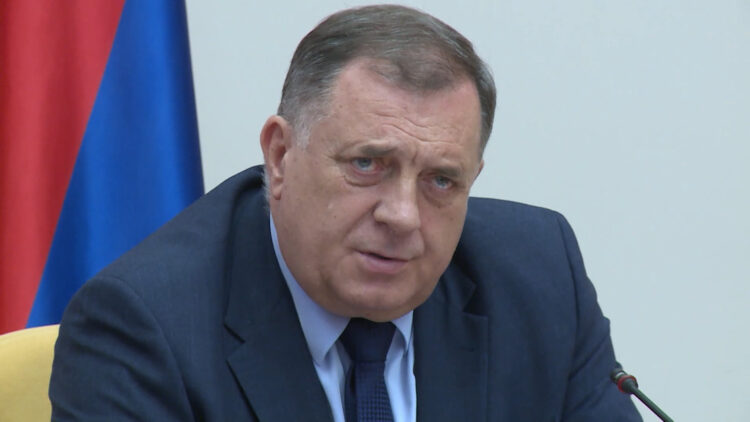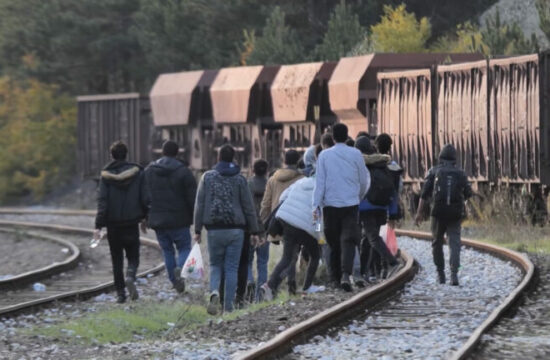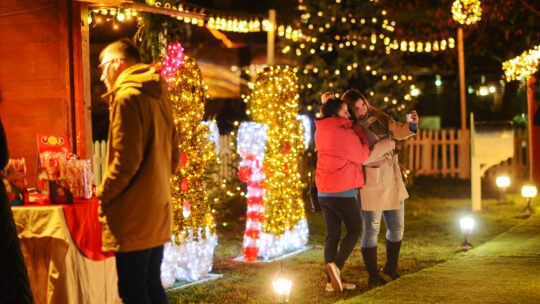
Sarajevo was neither under the siege nor besieged but was an ethnically divided city, president of Bosnia's Serb-majority entity Republika Srpska Milorad Dodik said on Friday on a wartime anniversary, which sparked fierce reactions among politicians and associations of victims. Pročitaj više
“The city where almost 160,000 Serbs lived is today completely ethnically cleansed. Everything that famous Sarajevo Serbs built and created in that city no longer exists, and their merits are not recognised even by the mere street names. They changed even that,” said Dodik, not mentioning specific examples for his words.
“All this speaks volumes for how political Sarajevo is steeped in hatred and resistance to everything that is not Muslim. For them, the truth is only that from their point of view, which they want to serve to everyone. As far as their political provocation towards the Serb people and Republika Srpska goes, the fact that they wrote on the boards at the entrance to that city of death for the Serbs that it was under siege for 1,425 days, which is a notorious lie, is telling. During the war, Sarajevo was neither under the siege nor besieged, but was an ethnically divided city,” he said, speaking on the occasion of the event called ‘Day of Defence of Sarajevo-Romanija region’.
He also said the “expelled Serbs from Sarajevo” found a shelter in Republika Srpska, “their true homeland” or in Serbia and elsewhere in the world.
Benjamina Karic, the Sarajevo mayoress, was among the first officials to react to Dodik's statement, asking him to “leave the city alone.”
“Sarajevo does not need to prove anything to anyone! Leave the city and the citizens of the multi-cultural, European, Olympic Sarajevo alone, spare us of your hatred, lies, and use of nationalism for gaining some personal benefits,” she stressed.
Bosniak member of Bosnia's tripartite Presidency Denis Becirovic joined the criticism, calling on representatives of the European Union to “join the sanctions of democratic world against the politicians who jeopardise the Dayton Peace Agreement and deny final international court decisions.”
“His targeted and immoral denial of the crimes committed against the civilians of the capital of Bosnia and Herzegovina is based on the ideology of evil, which unfortunately lives on today. This ideology led some of Dodik's predecessors behind bars. The laws of Bosnia and Herzegovina are clear and they do not allow denial of genocide, crimes against humanity and other crimes,” he stressed.
Association of victims and witnesses of genocide of BiH reacted with a brief statement, advicing Dodik to read the international courts’ rulings, namely the International Criminal Tribunal for former Yugoslavia and the International Residual Mechanism for Criminal Tribunals.
“The rulings of those courts wrote a modern history of the Serb people that you created,” the association said.
Dodik's statements go against the fact that Sarajevo was under the siege from April 5, 1992 to February 29, 1996, for a total of 1,425 days, making it the longest siege in modern history through the 20th century.
The UN court for war crimes in former Yugoslavia, based in The Hague, convicted four Bosnian Serb officials for numerous counts of crimes against humanity committed during the siege, including Stanislav Galic and Dragomir Milosevic as well as their superiors Radovan Karadzic and Ratko Mladic.





Kakvo je tvoje mišljenje o ovome?
Budi prvi koji će ostaviti komentar!